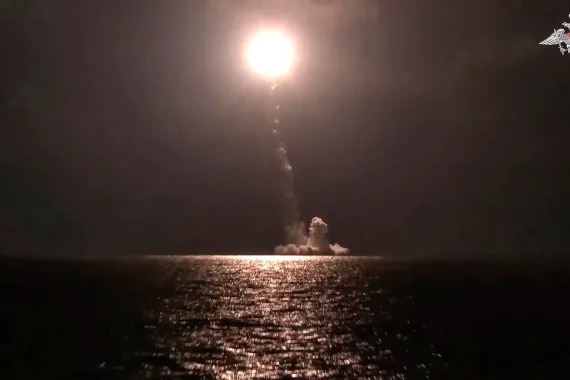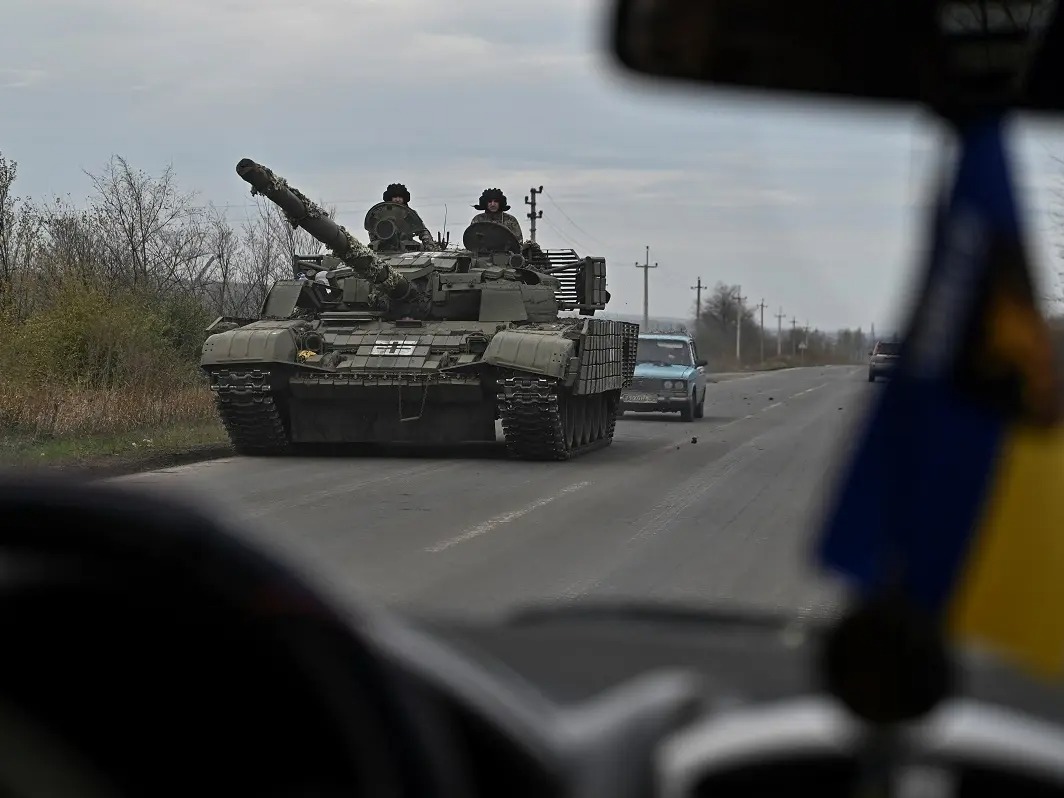Russia announced that it had successfully test-fired an intercontinental ballistic missile capable of carrying nuclear warheads from its state-of-the-art Borei-class submarine, the ‘Emperor Alexander the Third.’ This missile launch, conducted off Russia’s northern coast in the White Sea, marks a remarkable achievement for Russia’s military capabilities and comes just days after President Vladimir Putin’s controversial decision to withdraw from the global nuclear test ban treaty. The successful missile test reaffirms Russia’s commitment to strengthening its nuclear arsenal and its determination to assert its position on the global stage.
A New Milestone in Naval Warfare
The Borei-class submarine, Emperor Alexander the Third, achieved a major milestone by successfully launching the Bulava sea-based intercontinental ballistic missile. This missile, known for its capability to carry up to six nuclear warheads, was fired from an underwater position in the White Sea, ultimately striking a target thousands of kilometers away on the Kamchatka peninsula in the Russian Far East. With the Borei-class submarines serving as a core component of Russia’s nuclear forces, this test-firing is a significant step toward enhancing the country’s naval warfare capabilities.
Modernizing Russia’s Nuclear Arsenal
Russia’s commitment to modernizing its nuclear arsenal is evident in the development of the Bulava missile and the deployment of Borei-class submarines. These submarines, equipped with 16 Bulava missiles each, are not only more maneuverable but also quieter than their predecessors, giving Russia an edge in strategic naval operations. As President Putin has consistently increased military spending and sought to rebuild Russia’s nuclear and conventional forces, this successful missile launch reflects Russia’s relentless pursuit of military supremacy.
Diplomatic Implications and Nuclear Rhetoric
The timing of this missile test has raised concerns and triggered diplomatic implications, especially in the wake of Russia’s withdrawal from the global nuclear test ban treaty. President Putin’s decision to exit the treaty was portrayed as a move to align Russia’s policies with those of the United States. However, it has been met with criticism from the international community, which fears an escalation in nuclear rhetoric. The Kremlin’s strained relations with the U.S. and the European Union have further intensified concerns, especially in the aftermath of Russia’s invasion of Ukraine. Dmitry Peskov, the Kremlin spokesperson, acknowledged that relations with the U.S. are currently at a low point, indicating the need for a potential resumption of diplomatic contact in the future.
As Russia’s military capabilities continue to evolve, the international community remains vigilant, keeping a close watch on Russia’s nuclear activities and its potential impact on global security. While key countries like the U.S. and China have not ratified the Comprehensive Nuclear Test Ban Treaty, Russia’s recent actions highlight the urgency of maintaining international agreements and fostering diplomatic relations to ensure global peace and security.
In conclusion, Russia’s successful test-firing of the Bulava missile from the Emperor Alexander the Third submarine underscores the nation’s commitment to bolstering its nuclear capabilities and modernizing its military. The diplomatic implications surrounding this event serve as a stark reminder of the complex geopolitical landscape and the importance of maintaining international agreements for the greater good of global security.
















